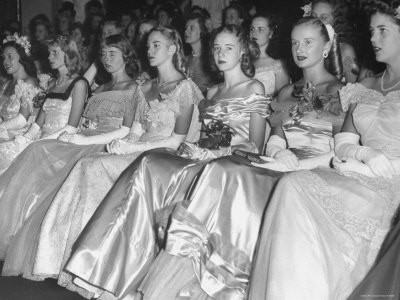The Offering Plate
Reverend Joe Dawson had tried really hard not to let it bother him – the whole screwy tithing that Hiram Snodgrass was pulling – but over the weeks, it had started to get the better of him.
By minister standards, Joe was new to Watervalley. He had been the pastor at Watervalley First Presbyterian for only a little over a year. His predecessor, Reverend Angus McCall had been there for thirty-three. But Angus had retired and upon departure had done little to disguise his disgust with God’s frozen chosen. The years had worn him down and one day he had an epiphanal moment where he realized that pleasing everybody was impossible, but pissing everybody off was pretty easy. He unceremoniously left town and moved to a mobile home park in Sarasota, Florida. Each day Angus drank a little wine, walked the beach, and tried to figure out why he hadn’t retired ten years earlier. Watervalley existed only in his rear view mirror.
So, the leadership at First Pres wanted some new blood and they found it in Pastor Joe Dawson who had been leading a little church in a suburb of Charlotte, North Carolina. Joe was thirty-one, energetic, married, theologically sound, and easy to like. He had a slight build and a big smile. He was their guy.
They made an offer that Joe refused. So they kept raising the offer to demonstrate that God was truly calling. Joe accepted. It had been a good decision.

With his broad likability and tireless vitality Joe hit the ground running and was fitting in perfectly. But lately, he was having doubts. It was all because of Hiram Snodgrass.
Hiram was a retired schoolteacher. He was an old bachelor; beanpole tall, with a sparse frame, a bald head, and a boney jaw that sat on a long, skinny neck. Hiram hadn’t cracked a smile in two decades. Nevertheless, he showed up every Sunday – same suit, same tie, same crabby disposition – and planted himself in the front right of the sanctuary. Hiram lived in a nice house on Society Street and drove a late model Ford. He wasn’t poor, just miserly.
During his sermons Joe would occasionally glance over at Hiram, who invariably stared back with an ill-tempered face. But Hiram’s cranky outlook wasn’t the issue.
The problem was Hiram’s grading system.
He had fallen into the habit of giving the sermon a grade in the “Note” section of his check before he placed it in the offering plate. Typically, he would write a simple comment such as “Sermon: C minus.” The amount of the check would be computed accordingly.
Several months back, Darlene, the church secretary, had brought this to Joe’s attention. And as the weeks passed it had become something of a Monday ritual for the two of them to see what Sunday’s grade had been. Only once had he gotten as high as a B- with most grades being a C or D along with the occasional F. It was starting to grate on Joe.
It wasn’t so much the money -Joe was at peace with that topic. He saw that as an issue between each church member and their maker. And despite all the assurances regarding grace versus works, he knew that many still treated heaven like a theme park, and there was always a price for admission. Albeit, that being their thinking, he also noted that most of his congregants were shrewd economist, endeavoring to get their salvation ticket punched with the least possible capital outlay.
He thought about approaching Hiram and asking him. But Hiram wasn’t very approachable. After each Sunday service Hiram would simply grunt and shake Joe’s hand at the sanctuary door and beat a hasty retreat to his car. Joe had tried to call Hiram several times but never got an answer. Randomly stopping by Hiram’s house a couple of times had also yielded no results. Hiram either wasn’t at home or not answering the door.
So little by little Joe started changing his sermons. First, out of curiosity, but eventually, he was doing it out of obsession. One Sunday, he said the name Jesus twenty-three different times, but that only yielded a C minus. He changed the focus of his sermons and began to speak more on grace, and love, and acceptance, easing away from the prickly topic of a judgmental God. This attained a flat out F. Joe was at a complete loss. He wished Hiram would become a Methodist.
It all came to a head several Sunday’s ago.
Joe had a prepared a sermon about trying to reach out to God and how He deserved our understanding. But when he laid the papers before him on the pulpit, something in him snapped. He was kidding himself. Somewhere along the way he had gotten off the path, had lost his authentic self and his true understanding of his faith.
He began to preach. And he preached a gospel. Not a sanitized one that was watered down so as not to be offensive or one that inconveniently conflicted with the preferred habits of his congregants. It was a gospel of scriptural absolutes, one that did not apologize for acceptance or begged for updating and alteration to fit the times. He boldly asserted that the word “judgment” is mentioned two hundred and ninety-four times in scripture while “forgiveness” is mentioned only fourteen. He preached with passion, with conviction, with quiet certainty.
He closed with an apology. Not for scripture, or for an enigmatic God, but for his own failings, for his own inability to present truth in a pure and clear and irrevocable manner.
After he said the closing prayer, he looked up to see Hiram staring at him with a look of frigid insolence. It was a look as if Joe had just testified in court against him. After the service, Hiram left through one of the side doors, clearly intending to avoid Joe. It saddened him. He had been unable to connect. Although he had spoken truth, his words had fallen to the floor, never reaching Hiram.
Monday morning confirmed Joe’s deepest concern. Hiram hadn’t left a check at all. For Joe, it was not about the money – the church was doing fine. It was about Hiram, about Joe’s failure to connect with the truths of scripture. Despite this, he felt a consolation, a peace at having spoken from the foundations of the gospel. Nevertheless, it was a loss. Joe would give it a few days and try again to reach out to him.
But he didn’t need to. Because Tuesday morning Hiram was standing at the church office door when Joe arrived there at 7:00 AM. Joe approached him cautiously.
“Hiram. Good morning.”
Hiram was stern faced and nodded stiffly. “Preacher. I forgot to leave this on Sunday.” He handed Joe an envelope, nodded again and departed.
Joe watched him walk down the short sidewalk to his car. He thought about stopping him, about asking him to come inside and talk. But something told him to let Hiram go. Joe turned and walked inside.
He let the envelope sit on his desk for the better part of the day, staring at it occasionally, trying to decide if he really wanted to open it or not. At four in the afternoon it was time to go home. He got up to leave and was about to lock the office door, but the envelope stopped him. He walked back to his desk, got out his letter opener, and tore it open.
Inside was a note, written in Hiram’s unsettled hand. It read as follows:
“Preacher, God is many things, but punctual is not one of them. I’ve been waiting for several decades for him to show up at First Pres. Sunday, he finally did.”
Enclosed was a check, this one with an added digit to the amount. But what gratified Joe the most was what Hiram had written in the note section of the check. It read “Sermon: B-. Preacher: A+.”
I’m J. High, and for now in Watervalley, that’s pretty much the high point.










